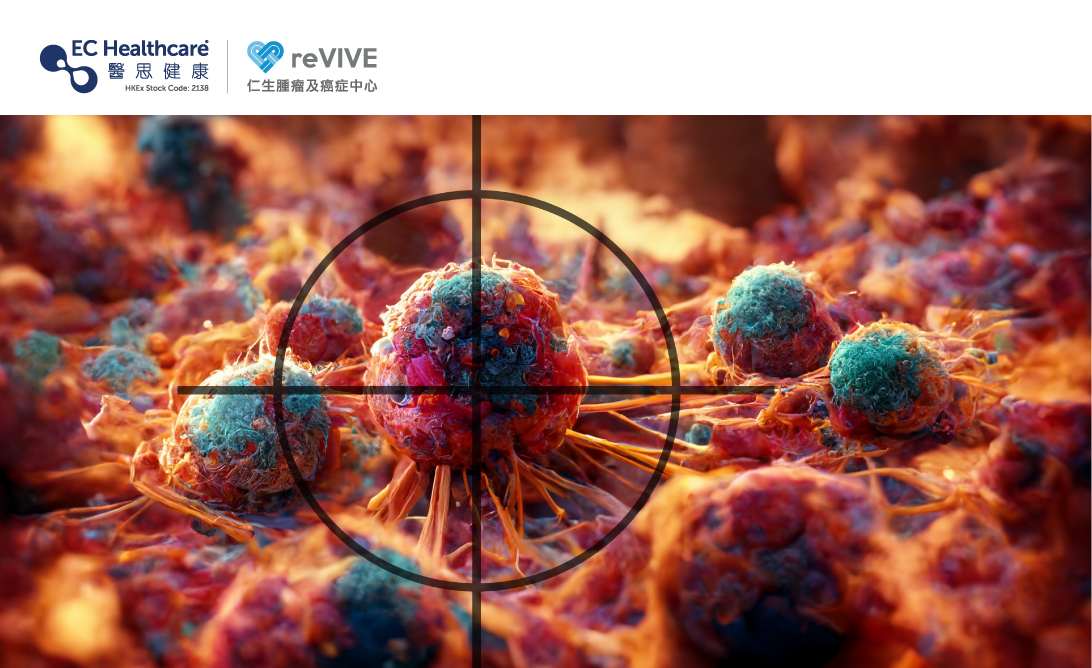What cancers are targeted cancer drugs suitable for?


Since the beginning of the 21st century, targeted drugs have been widely used to treat cancer. Mainly through oral tablets, capsules, intravenous injection or subcutaneous injection, targeted drugs with effects on cancer cells can be accurately exerted in the body. With the advancement of targeted drug development technology, the survival rate of cancer patients has also been greatly improved. However, are targeted drugs suitable for all cancers? Under what circumstances should patients not use targeted drugs for cancer treatment? The following article will deepen everyone’s understanding of cancer target drugs.
How do targeted drugs treat cancer?
Targeted drugs can attack some special characteristics of cancer cells without damaging normal cells, hitting the fatal weaknesses of cancer cells, inhibiting the growth and spread of cancer cells, and even inducing cancer cell death. Therefore, targeted drugs have four characteristics, including: targeting specific molecules, accurately attacking, improving therapeutic effects, and prolonging patient survival.
What types of targeted drugs are there? What cancers is it suitable for treating?
There are many types of cancer targeted drugs. As of 2023, the U.S. Food and Drug Administration (FDA) has approved more than 100 cancer targeted drugs, and the number of new targeted drugs will continue to increase.
Different types of targeted drugs cover different pathogenesis of cancer and are generally classified according to the drug's mechanism of action and target. The following are common categories of cancer targeted drugs:
Signaling inhibitors: Also known as tyrosine kinase inhibitors (TKIs), tyrosine kinase (TK) is a key protein involved in the growth and division of cancer cells. This type of targeted drugs can block the growth and division of cancer cells. The activity of TK in signaling.
Angiogenesis inhibitors: Inhibit the growth of blood vessels on cancer cells, making them unable to obtain nutrients and oxygen and shrink.
Apoptosis-inducing drugs: Cancer cells can generally escape the apoptosis mechanism of normal cells, and this drug can induce apoptosis in cancer cells.
Immunotherapy drugs: Can combine with patient’s own immune cells to stimulate the body's immune system to kill cancer cells on its own.
Monoclonal antibodies: Monoclonal antibodies carrying toxins can bind to proteins on cancer cells and release toxic or radioactive substances, causing cancer cells to die.
Currently, targeted drugs are suitable for treating brain cancer, breast cancer, lung cancer, colorectal cancer, liver cancer, stomach cancer, kidney cancer, pancreatic cancer, prostate cancer, bladder cancer, melanoma, lymphoma, leukemia, etc. It should be noted that even if you suffer from the same type of cancer, its pathogenesis may not be the same. The implication is that patients with the same type of cancer may need to take different types of cancer targeted drugs.
Under what circumstances should patients not use targeted drugs?
Although targeted drugs can treat most cancers and increase the success rate to fight against cancer, not all cancer patients are suitable for use. If the cancer type or genetic mutation you have is not consistent with the mechanism and target of the targeted drug, it should not be used. In addition, targeted drugs will bring a certain degree of side effects to the body. If the patient is already in poor health, such as heart disease, liver disease, kidney disease, immune system disease, allergies to certain ingredients in the target drug, etc., they should not use it.
At the same time, cancer cells may become resistant to targeted drugs over time and become no longer effective; some targeted drugs may interact with other drugs, affecting efficacy or increasing side effects. It is recommended that patients inform their doctors about the prescription and over-the-counter drugs they are taking so that doctors can specifically assess the cancer patient's condition and provide the best anti-cancer plan.
<Make Appointment>
Disclaimer: This article is prepared by an independent third party and is not sponsored. The content provided is solely for informational purposes and should not be considered a substitute for professional medical advice, diagnosis, or treatment. It does not represent any specific viewpoint. In the event of any discomfort or health issues, it is advised to seek medical attention promptly.









